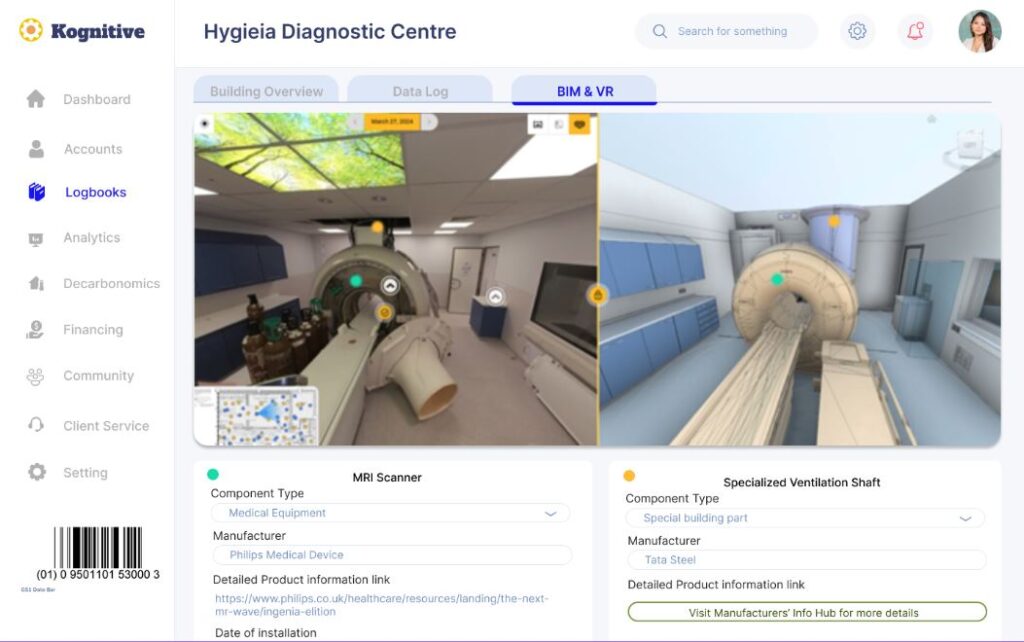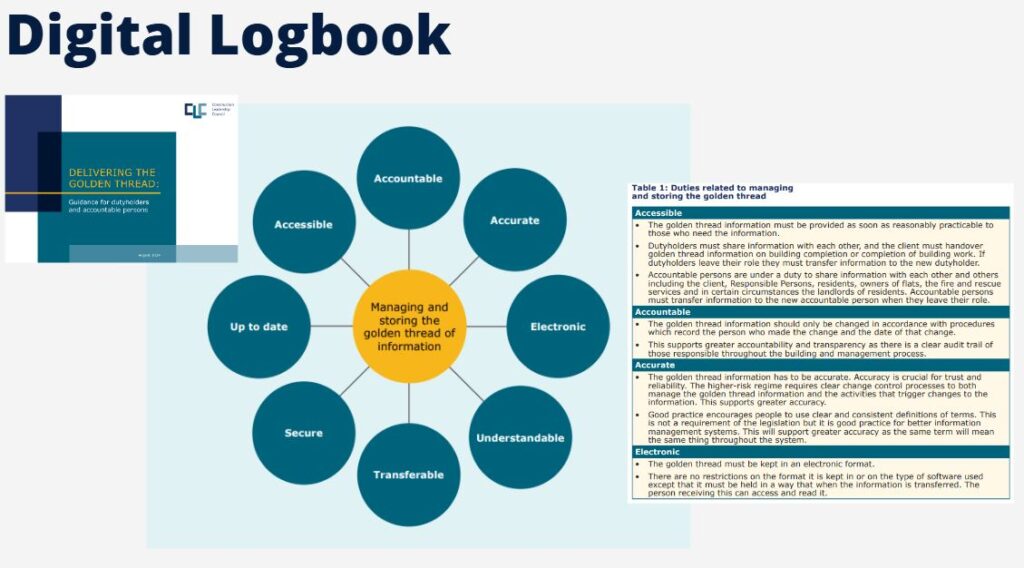Platform Design
The Hygieia team is working alongside industry and Government to define the need and establish a clear route for industry and clients to adopt a platform approach, one that will enable the industry to meet the evolving needs of future infrastructure.
The benefits of a platform-based approach are varied and include:
- Improved assurance of buildings.
- Reduced whole life costs.Improved health and safety.
- Reduction in delivery time.
- Reduced greenhouse gas emissions.
- Higher level of lifetime build performance.
Digitalisation
As the UK construction industry rapidly moves towards digitalisation, and the concept of digital twins is considered a ground-breaking development with enormous potential, Hygieia plans to utilise digital twins to reduce their footprint on job sites (less travel to meetings/visits equals fewer CO2 missions), enhance safety and monitoring procedures, speed up workflow processes, increase automation, improve asset management, and give stakeholders the information they need to empower effective documentation and collaboration on a project.
Building Information Modelling (BIM) is transitioning from a ‘modern way’ to design, build, and manage construction projects to a ‘compulsory way’ for all projects, big and small. Nowadays, all public-private partnership (PPP) tenders require “some” form of BIM capability and delivery, although the standards and expectations vary from project to project.
Building Digital Passports and Logbooks is a way of storing the Hygieia building information for the Golden Thread of information aligned to the Building Safety Act 2022. The data repository will help property owners understand their roles and legal duties as set out in the Building Safety Act 2022 and other industry standards such as BREEAM, RICS, and PAS2035/2038. This offers a tremendous amount of potential to clients


Alternative PV solutions
We are conducting R&D on a ‘peel and stick’ module with integrated solar cells. Modules are attached to the approved substrate to create a roofing system that can be installed in the same way as a conventional roof. This could have the potential to be a factory-applied solution during module assembly, reduce working at height, and reduce weight on the CDC building’s roof structure. These solar modules contain a self-cleaning top sheet to deter mildew, dirt, or other obstacles.
Infrared Heating Foils
We are conducting R&D on cutting-edge technology, and ultra-thin Infrared Heating Foils. For under-floor, inside walls, or ceilings, this product is extremely lightweight plus extremely efficient and fast heating. Foils are made from non-toxic, non-harmful materials and are fully recyclable.
Air purification paint / Carbon Capture paint
We are conducting R&D on Air Purification and Carbon Capture Paint. These are ecological products and are composed of natural elements that purify the air we breathe inside our buildings. It is suitable for people suffering from chemical intolerance, recommended for indoor enclosures, hospitals, nurseries, retirement homes, hotels, environments or rooms for infants and children.
The Ambient Pro range of this paint coating is also self-cleaning, absorbing CO2 as well as other toxins such as Nitrous Oxide (NOx) and Sulphur Oxide (SOx) via a catalytic reaction using Titanium Dioxide.
The health benefits resulting from the use of such materials for individuals living in Healthcare buildings are:
- Improves air quality of indoor environments.
- Limits pathogens derived from sick building syndrome (sBs).
- Prevents mould growth, fungi, and bacteria, guarantees safe domestic environments.
- Increases comfort and quality of life.
Hydrogen Power
Hydrogen could offer a greener future for us all, but harnessing its full potential requires a degree of technical understanding. We are in the very early stage of R&D to see how this could be used for fuel/energy for our modular buildings.
Consisting of one proton and one electron, hydrogen is colourless, odourless, tasteless, non-toxic, and non-poisonous. It is eight times lighter than natural gas and burns eight times faster. But unlike oil and gas, hydrogen is not a fuel in itself; it’s a way of storing and transporting energy, which is particularly important for renewable energy.
Hydrogen holds significant promise for the transmission of clean energy, but given its flammability, it must be handled and processed very differently than other fuels.